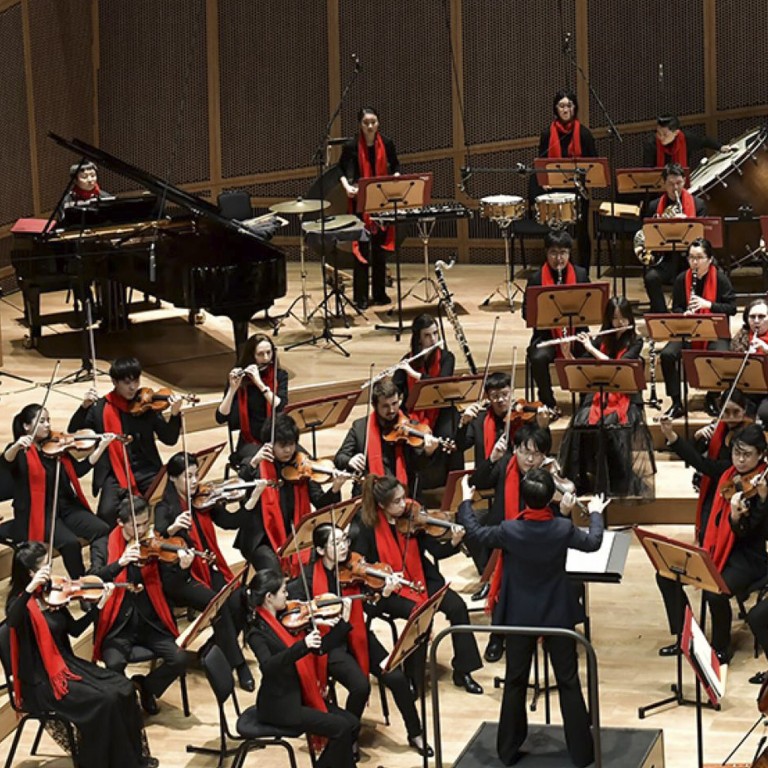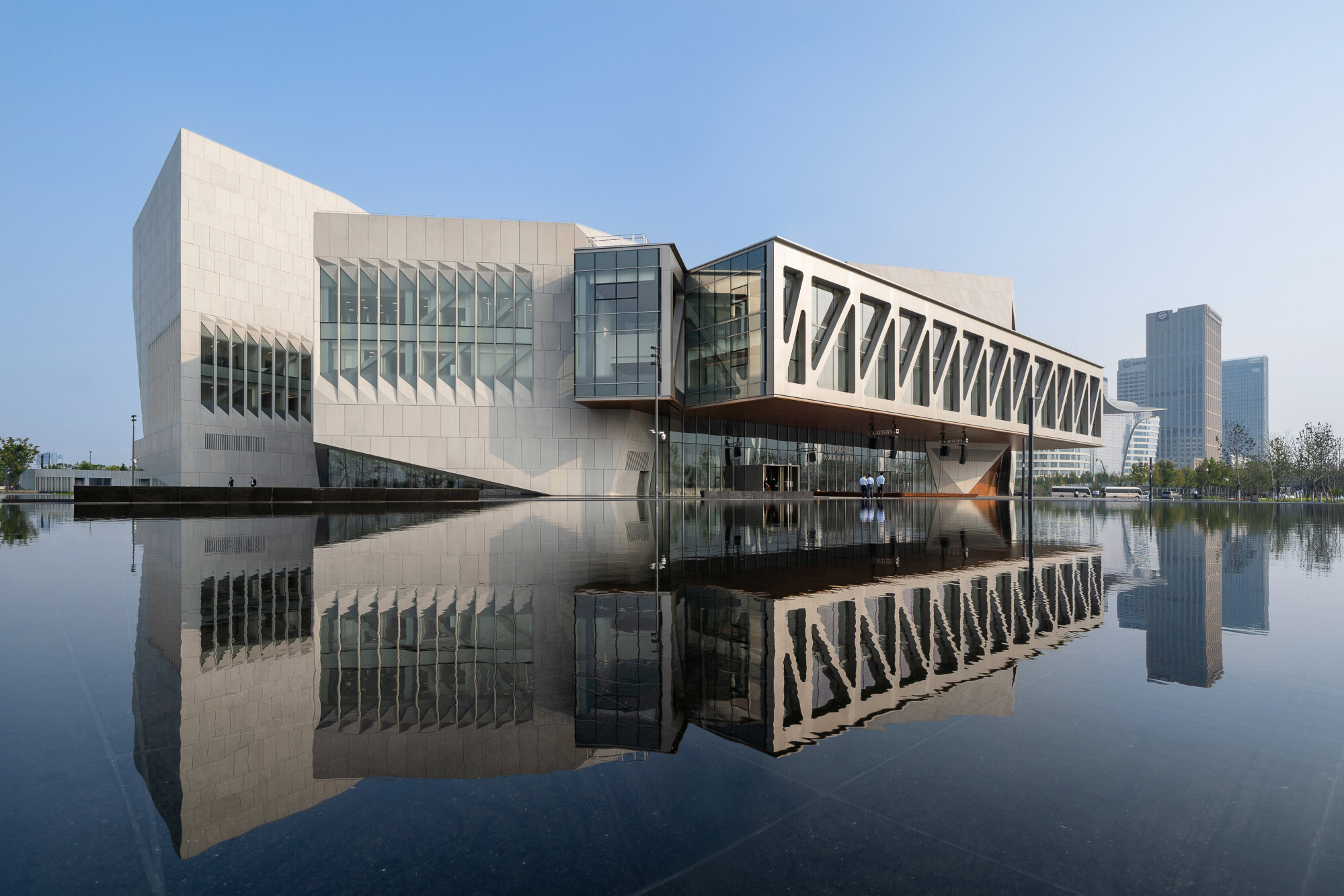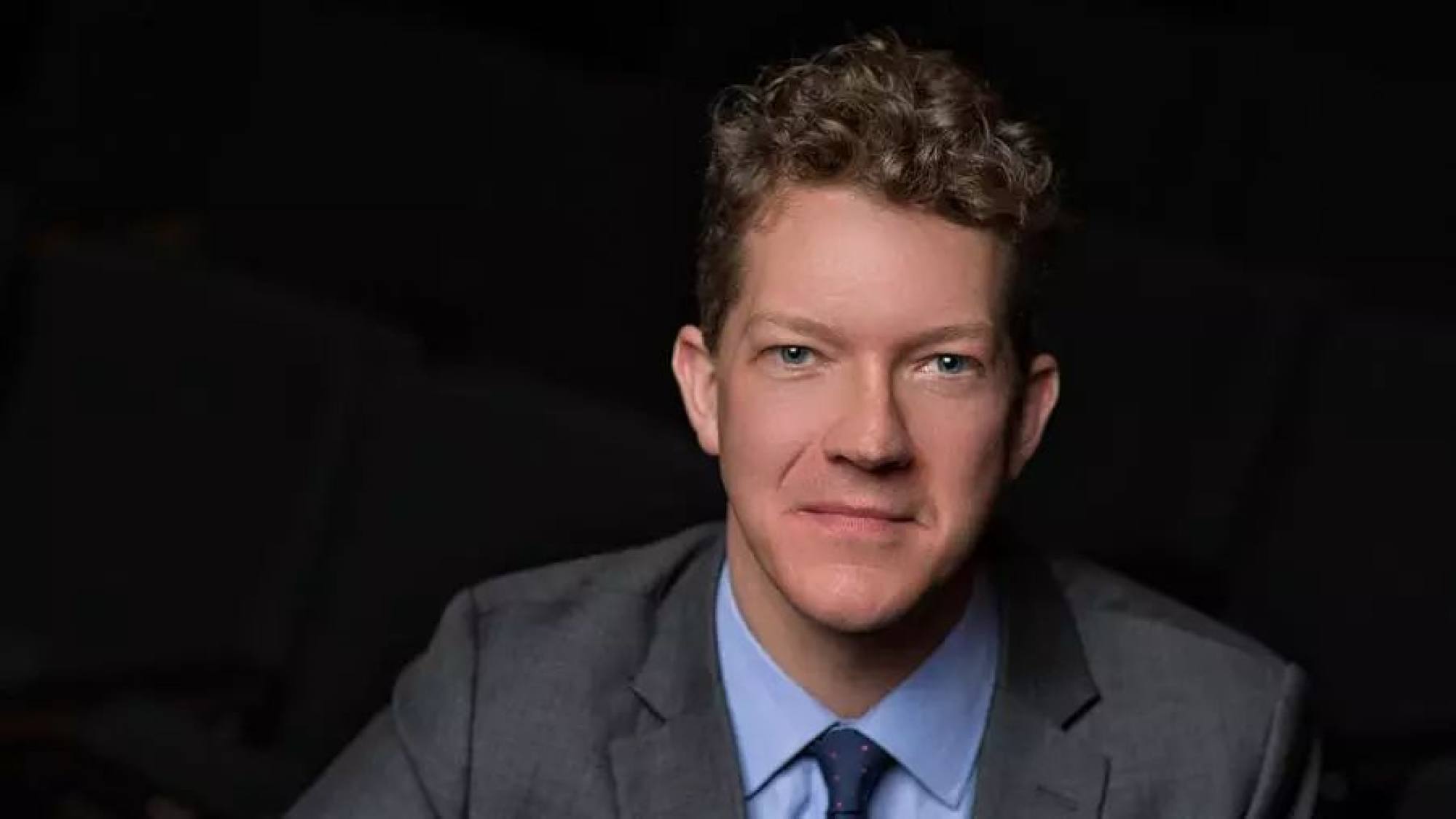
New York’s Juilliard School outpost in China, Tianjin Julliard School, caters to nation’s love of classical music
- The famous music school in New York opened its first overseas outpost in 2020, tapping what its director says is the huge interest in classical music in China
- Young students from all over China travel hours by train to the school in northeast China every weekend to attend classes
Late last year, students at the Tianjin Juilliard School – the first overseas outpost of the prestigious performing arts conservatory in New York – were shown the 1980 Oscar-winning documentary From Mao to Mozart: Isaac Stern in China.
The film covers the violin virtuoso’s historic visit to China in 1979, and the screening was intended to illustrate the evolution of classical music education in China, says Tianjin Juilliard’s executive director and chief executive, Alexander Brose.
“The documentary records Stern’s trip to see what the classical music world was like in China 40 years ago,” he says. One of the students who plays the violin for Stern in the documentary, Li Weigang, teaches at the Tianjin Juilliard School, Brose says.
Much has changed in China over the past four decades, but Brose says the level of commitment and investment some Chinese families put into their children’s classic music education remains profound.
“A 12-year-old Tibetan girl, a violinist, flies [over three hours] from Qinghai province every Friday with her parents and goes back home on Sundays,” he adds. “Other students take the train every weekend from Changsha (journey time 5.5 to 7.5 hours), Changchun, Chengdu (journey time 7.5 to 10 hours).”
Brose says there’s huge interest in classical music in China. “Children are going not only to our spaces, but also concert venues around the country,” he says. “They devour very challenging programmes until 10:30pm and [leave] the concert halls wanting more.”

Juilliard New York offers undergraduate and graduate degrees in dance, music and drama, and its Tianjin branch offers three Master of Music (MM) degrees in orchestral studies, chamber music and collaborative piano. The school is the first institution in China to offer a US-accredited MM degree.
Opened last October, five months after the coronavirus pandemic was brought under control in China, Tianjin Juilliard School is in a newly built park along the Haihe River in the Yujiapu financial district, part of the Binhai New Area – a development zone for advanced industry.
About 40 per cent of the first cohort of 38 master’s degree students are non-Chinese, and Brose says Juilliard was the first school in China to be allowed to admit international students after travel restrictions were introduced in February 2020 as a result of the Covid-19 pandemic.
Lang Lang: ‘I’ve never felt so close to a composer’ as to Bach
“We were able to get all of our graduate students in from across the world,” he says. “New York University Shanghai [followed us]. But after that, no other schools in China have been able to bring in international students. This is an incredible testament to the relationship we have built here.”
The school is also accommodating 41 Chinese students of the New York Juilliard who are stuck in China because of travel restrictions and visa issues, and who join online lessons and take part in the Juilliard Tianjin’s orchestral and ensemble performances.
While the pandemic has affected enrolment for its master’s degree courses, which at 38 fell well short of the school’s 240 capacity, Brose says about 90 students aged from eight to 18 have been enrolled in the school’s pre-college programme, held every Saturday.

Although the capacity of Juilliard Tianjin’s concert halls is still capped at 75 per cent, Brose says people have been flocking to performances by students and faculty.
“Tickets for our very first concert – a bassoon recital – were sold out in 30 minutes,” he says. “Our capacity can be [restored] to 100 per cent from April 25.”
Designed by New York architectural firm Diller Scofidio + Renfro, which oversaw the 2009 renovation of Juilliard’s New York campus, the Tianjin school contains a 700-seat concert hall, a recital hall and a simple black box theatre (where the documentary about Stern was screened).

Charles Renfro, partner at Diller Scofidio + Renfro, says the three major performance spaces were sunk below ground so park surface could be retained. “We thought of the lobby as essentially a continuation of the park surface,” he says.
“We elevated all the teaching and practice spaces into a series of bridges that span between the pavilions. The bridges have no vertical columns that go down to the lobby, allowing the public space to roll right through the building.”
Joseph Polisi, president emeritus and Juilliard School’s chief China officer, says another public space called Juilliard Imagination at basement level was designed by Sony.
“There are PlayStations where you can listen to playlists of various artists,” he says. “There are ways of linking to our extraordinary musical manuscript collection. [You can] compose music at a keyboard projected on a large table. You can spend all day there.”

